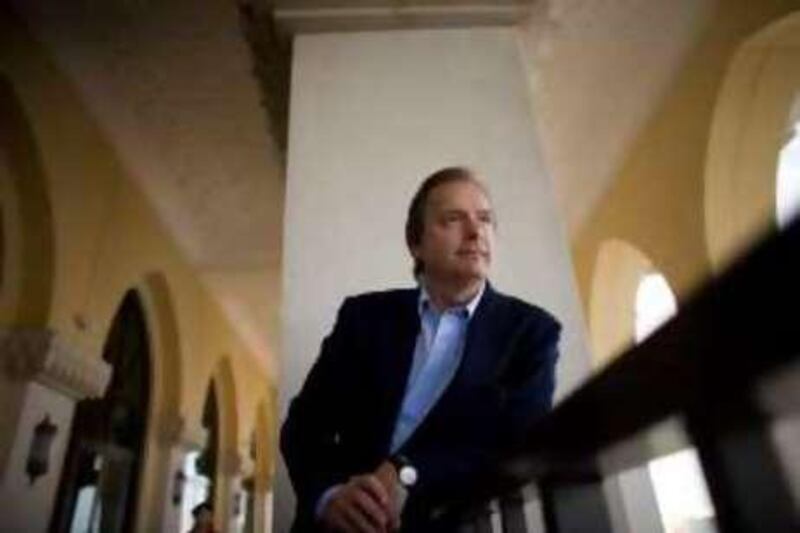ABU DHABI // The UK has become complacent in its relationship with the UAE and should make more of an effort to forge collaborations or risk being left behind by rival countries, a British politician has said. Hugo Swire, a Conservative member of parliament and vice chairman of the UAE all-party parliamentary group, said he was "concerned" other nations were developing stronger educational and cultural links with the Emirates.
Mr Swire is one of seven British parliamentarians from the group on a four-day visit to meet senior figures from the Government, business and media. France, in particular, has created strong links with the UAE by opening branches of the Paris-Sorbonne University and the business school Insead here. A branch of the Louvre museum is also to open in the capital. "Where are the British business schools? Why are they not talking about a Tate Modern?" Mr Swire said, referring to the modern art gallery in London.
"Jacques Chirac [the former French president] himself was very involved in the Louvre. I would have liked to see a greater British involvement. It's not too late. "I am also concerned on the educational side and medical side." Mr Swire, a former shadow minister under David Cameron, the leader of the opposition Conservative party, described links between the countries dating back to before the UAE's formation in 1971 as "complicated", but with "an empathy" on both sides.
"It's a marriage with two people with some subliminal link, but at times the marriage has not been as nurtured as it should be. "The problem is, the UK has been so diverted by pan-European policies, it has not invested as much time in coming here and getting to know the leaders here, including the business leaders. "As a result, Britain has slipped back because other countries have been proactive - the French have been, the Australians and the Americans have been."
There are about 80 members of the UAE all-party parliamentary group, which was founded five years ago and draws representatives from across party lines. The other members visiting this week include the Conservative MPs Andrew Robathan, Andrew MacKay, Julie Kirkbride, Adam Holloway and Philip Dunne. Lord Kilclooney, a cross-bencher in the House of Lords, is also among the delegation. About 50 to 60 of the group's members have been to the UAE.
"That's created a reservoir within parliament of people who understand what the Emirates are about, what they're trying to achieve and how important this part of the world is to the UK economy and politics," Mr Swire said. "If we continue to bring people abroad, that will add up to significant experience. They may have reservations about what's happening here, but they will have an understanding of the place.
"Parliament has lost its knowledge of this part of the world. The new generation has not been as immersed [in the region] as our predecessors were." Parliamentarians could help small and medium-sized businesses in their constituencies to secure deals with companies in the UAE, Mr Swire said. The chairman of the group, Kevan Jones, who is not on the visit, once brought out a delegation of businessmen from his part of Britain.
"That's something we would like to see more of," Mr Swire said. Mr Dunne, a deputy chairman of the Conservative party, said he hoped to encourage more of the estimated 120,000 Britons in the UAE to vote. He said only 15,000 expatriate Britons out of 2.5 million across the world were registered to vote, a figure he described as "pathetic". Expatriates are still eligible to vote up to 15 years after leaving the UK.
Many did not register, Mr Dunne said, because they feared their status as non-UK residents could be threatened, making them liable to pay British income tax. He insisted these concerns were unfounded. "They don't need to worry about the taxman looking up their voting record," he said, "because they don't have access to people's voting records." dbardsley@thenational.ae







